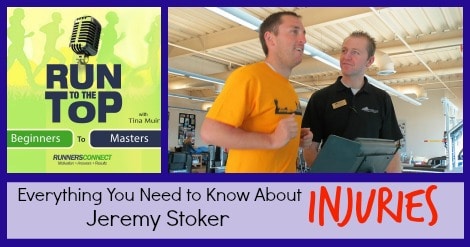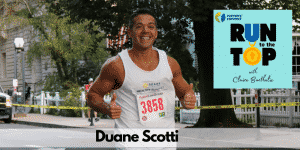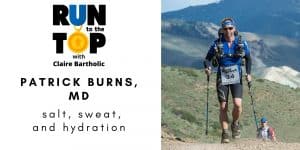It may not come as a surprise, but injury related topics are our most popular articles on Runners Connect. No-one wants an injury, and it is the most frustrating part of being a runner, especially as a lot of non-runners roll their eyes at us. But wouldn’t it be nice to talk to a professional who did not think runners were crazy, and could understand the treatment and scientific side of injuries as well as the drive and passion we have for our sport?
That is exactly what you will find from todays podcast. My guest today has his doctorate in Physical Therapy, and specializes in running injuries. All runners need to listen to this podcast, and I am sure most of you will be nodding your head as we go through this interview.

Jeremy Stoker
- Physical Therapist working at Mountain Land PT Kaysville Clinic
- Graduated from the University of Nebraska with a Doctorate in Physical Therapy
- Specializes in treating running injuries; we wont be getting the rolling eyes some other Physical Therapists give us!
- Ran his first marathon at age 15
- Certified USATF coach
- Regular speaker at events
- Recently American Physical Therapy Association National Conference
Todays Episode will cover
- Why 65% of runners and up to 90% of marathon runners will go through some kind of injury each year.
- How making cross training a part of your routine can reduce injury risk, help maintain fitness during injury, and return to running faster, and why you can use almost any form of cross training to get the benefits.
- How new runners can increase with their training without becoming injured, and Jeremy’s hopes for developing a scale for safe progression as runners.
- Why rotating your shoes can lead to a 39% lower risk of injury, and what you need to look for when you select your running shoes.
- The three things to consider if you have pain while running, and how to use these to determine whether to stop running or keep going.
- In what situations runners need to alter their racing plans or ultimately pull the plug on a race.
- Why the decisions you make during your return to running post injury are critical to the rest of your running life, and what you can do to make sure your return to running progresses correctly.
Or download the Full Audio MP3 to listen to on any device (Android and Windows) on your next run.
![]() Want more awesome interviews and advice? Subscribe to our iTunes channel
Want more awesome interviews and advice? Subscribe to our iTunes channel
![]() You can also download directly to your Stitcher Radio app
You can also download directly to your Stitcher Radio app
May we Ask You For a Favor?
Thank you again for listening to the show. If it has helped you in any way or you know another runner who could benefit from what we talked about today, we would really appreciate if you would share it using the social media buttons on the side of the page.
We would love if you could leave a review for the podcast on iTunes for us. It would really help us grow. Here is a YouTube video demonstration of exactly how. Thank you!
And lastly, if you have any questions you can email tina@runnersconnect.net or leave us a voice message at (617) 356-7969 or click the voice message button on the right side of the page.
Links and Resources mentioned in this Interview:
Mountain Land Rehabilitation- Kaysville
Cadence manipulation for decreasing joint loading/ground reaction force
Parallel shoe use and participating in other sports…both are found in this article and to be reduced injury risk
5000m Performance and core strength
Cross Training (strength training/lifting) and running outcomes
How Long Does it Take to Lose Your Running Fitness?
Don’t Shun the Walk/Run Method
How to Return to Running After a Stress Fracture
The Importance of a Full Body Gait Analysis
Please consider giving us a review on iTunes by clicking THIS link. You can follow this YouTube Video of a Demonstration of How to Leave a Review. Thank you in advance 🙂








